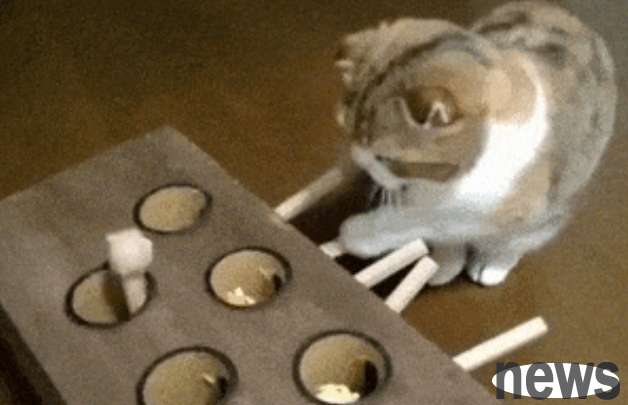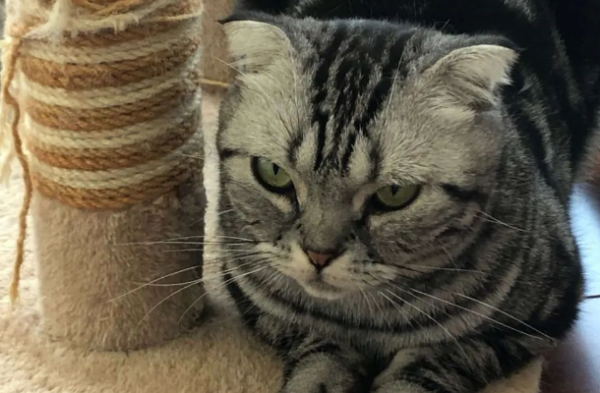Do cats not eat or drink or go to the toilet at home alone? Is it "separation anxiety"
What's wrong with my cat?
When I go home every day, I always find that I don't eat a few bites of cat food and don't go to the toilet. I was so excited to see the shit shoveling guy coming home, and I was rubbing and rumbling.
Are cats uneasy because their owner is not at home?
Let's walk into the world of empty-nest cats together and see how to relieve their uneasiness! Is

due to separation anxiety?
Separation anxiety was first discovered in human infants. The separation anxiety among dogs is very common, what about cats?
What is separation anxiety?
Separation anxiety refers to the anxiety that occurs when leaving close relatives and friends. Anxiety during separation is a normal mood, not a pathological one.
But if this emotion develops further, makes the animal feel very painful and has pathological behavioral changes, it is "separation anxiety".
Does cats have separation anxiety?
There are currently many completely different opinions on whether cats have separation anxiety:
Some people believe that when conducting a survey on behavioral problems of cats, 19% (136 out of 719) of cats only develop a series of symptoms similar to separation anxiety from dogs when they are separated from close people/companions.
The relevant evidence is "Separation anxiety syndrome in cats: 136 cases (1991–2000)" published by Stefanie Schwartz in the Journal of the American Veterinary Association in 2002.
Some people think that there is no: the sense of security of a cat does not seem to be due to being with the owner, and the cat will not feel pain because of the owner's departure. What cats care about is the resources provided by their owners, and the so-called "separation anxiety" is caused by boredom and stress.
The relevant evidence is "Domestic Cats (Felis silvestris catus) Do Not Show Signs of Secure Attachment to Their Owners" published by Alice Potter et al. in PLOS ONE in 2015.
Does cats have separation anxiety?
snail noodles cannot give an accurate answer.
However, it is a real phenomenon that some cats have behavioral changes after their owners leave home.
Whether it is caused by "separation anxiety" or not, if the cat undergoes abnormal behavior changes after the owner leaves the house, we need to be vigilant and make adjustments to the environment.
What changes should you be vigilant about?
Abnormal changes
If you suspect that a cat may have behavioral changes, it is best to install a camera at home to confirm it, and record the behavioral changes in the cat in the form of a log. The following should be paid special attention to:
Usuade at an inappropriate location
Use at an inappropriate location
Usage at an inappropriate location
Usage at an inappropriate location
Usage at an inappropriate location
Usage at an inappropriate location
Usage at an inappropriate location
Usage at an inappropriate location
Usage at an inappropriate location
Usage at an inappropriate location
Usage at an inappropriate location
Usage at an inappropriate location
Usage at an inappropriate location
Usage at an inappropriate location
Usage at an inappropriate location
Usage at an inappropriate location
Usage at an inappropriate location
Usage at an inappropriate location
Usage at an inappropriate location
Usage at an inappropriate location
Usage at an inappropriate location
Usage at an inappropriate location
Usage at an inappropriate location
Usage at an inappropriate location
Usage at an inappropriate location
Usage at an inappropriate location
These problems do occur, what should we do? What can parents do?
Although there is no established answer to whether cats have "separation anxiety". However, for such behavioral issues, everyone has a similar set of improvement measures.
Reduce the sense of ritual when leaving
Every time you go out, do you say exaggerated goodbye to your cat?
"Mimi, I'm going to work. You have to be good at home and be good. I'll get off work soon, don't be afraid." Then have an exaggerated hug?
In fact, this will make the cat feel stressed and uneasy, rather than feeling comforted. For cats, it is: "A person who shovels takes the keys/purse/coat every day, and when you approach the door, it feels like you have become a different person."
So when you go out, try to be as calm as possible, just like you go downstairs to get a courier for 5 minutes each time you go out, don't lay too long.
Similarly, be calm when you go home and don't be too excited.

Environmental enrichment
Environmental enrichment, speaking humans means giving cats an environment that can entertain, relax and feel safe.
Cats usually like to stay high and enjoy the feeling of mastering everything. It is necessary to prepare a relatively high platform for the cat to stay on it with peace of mind.
Give the cat a place you and other animals will not step into, and you can hide in when you feel nervous and will not be disturbed.
Prepare some toys and food utensils, hide some snacks at home, so that cats can enjoy the fun of finding and hunting.
If the floor you live in is not very high (it is too high and the wind is very strong and there are no birds, how to fix it is also a problem), you can install a bird feeder outside the window. Attract birds and surprise your cat.
Cat pheromone and soothing classical music may also make cats feel at ease.
Limited supply
When you are at home, you can put away the food and toys that your cat usually likes and give it to the cat when you leave home.
However, when giving wet food, you should pay attention to giving less to prevent deterioration.
Check toys carefully and do not have small parts with safety hazards.
When cats have behavioral problems due to stress, they are often in pain. As poop shovelers, our gentle and calm attitude can help cats improve abnormal behaviors than yelling and crying.
This time, let us join the Buddhist army in the name of Meow!




